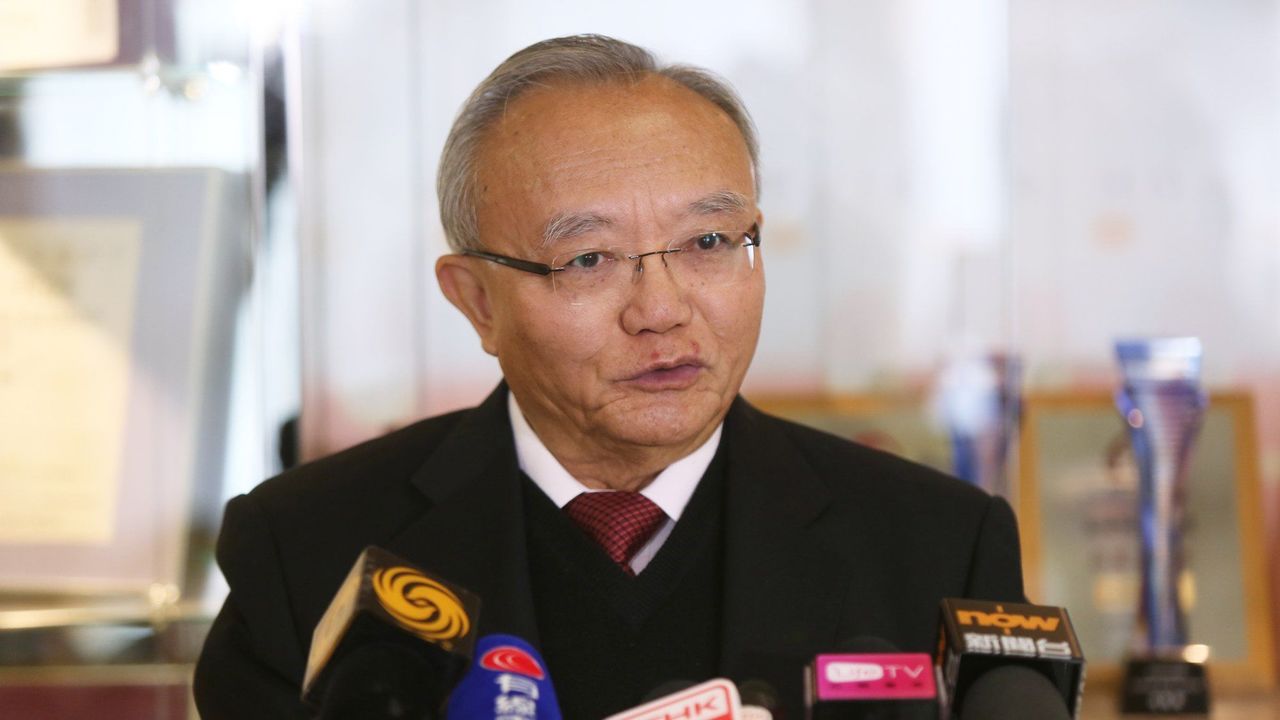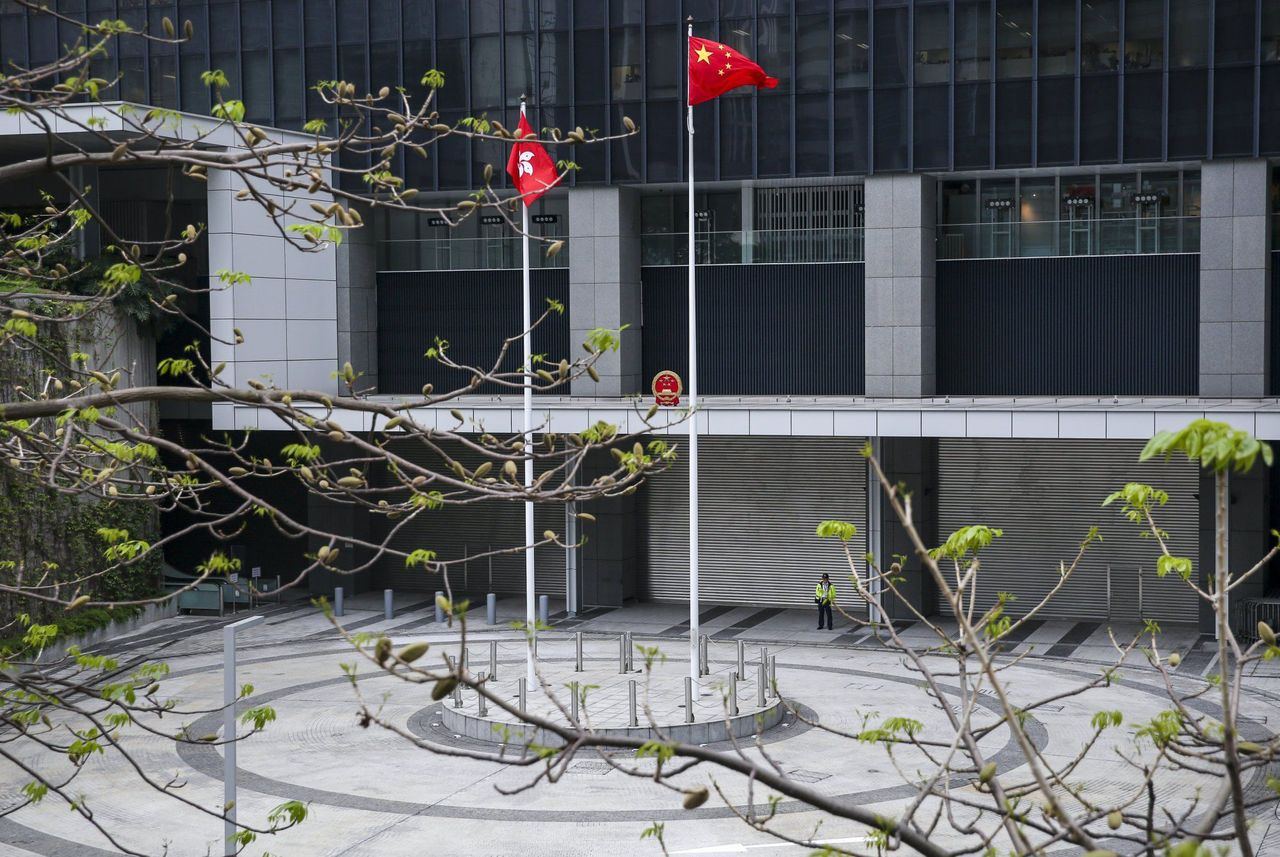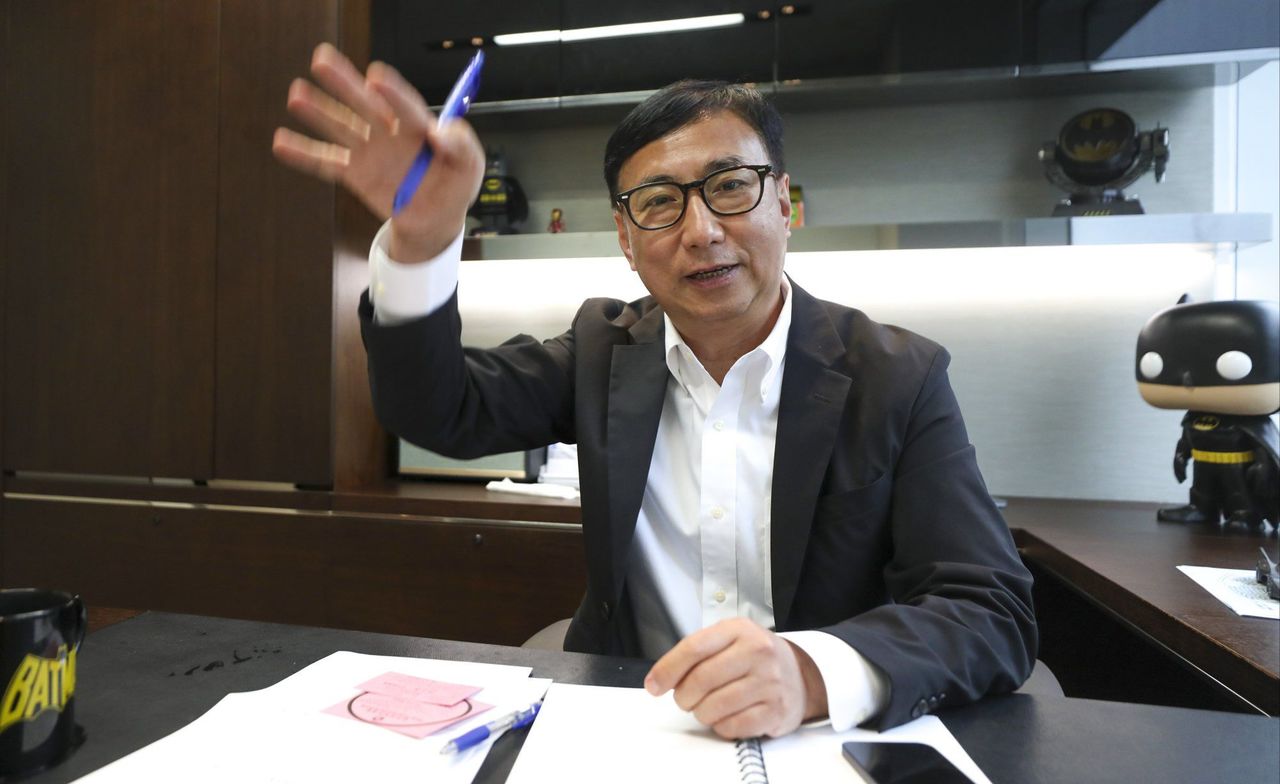The creation of two new top posts could help with the government’s workload but could also create friction in a big team, analysts warn.
Hong Kong’s sole chief executive candidate John Lee Ka-chiu is considering a makeover of government at the top that would revive a decade-old plan to strengthen the city’s No 2 and 3 positions with deputies, a move analysts say could help with oversight of mega projects.
But the additional positions could also spawn “internal friction” with too many chiefs jockeying for elevation, some pundits also warned.
“We have a lot of projects in the pipeline, such as the Northern Metropolis,” said political commentator Lau Siu-kai, from the semi-official Chinese Association of Hong Kong and Macau Studies. “The more help the better.”
 Lau Siu-kai of the semi-official Chinese Association of Hong Kong and Macau Studies.
Lau Siu-kai of the semi-official Chinese Association of Hong Kong and Macau Studies.
But political scholar Ivan Choy Chi-keung, from the Chinese University of Hong Kong (CUHK), warned bigger did not necessarily mean better as Lee’s team would then need to be managed to draw the best of them while taking into account their chemistry and ambitions.
“There is no guaranteeing things will be better with an additional person because it can give rise to internal friction,” said Choy, calling such a thinking of having bigger teams as too “traditional”.
The Post learned that Lee, the former policeman turned chief secretary, who is the sole candidate in the May 8 leadership poll after securing Beijing’s blessing, had plans to set up a deputy chief secretary and deputy financial secretary post.
He was also said to be considering reinstating the post of senior special assistant, whose duty was to advise the chief executive on mainland Chinese issues, arrange his trips to the mainland and conduct research into mainland-linked businesses and organisations. The post was cancelled by incumbent Chief Executive Carrie Lam Cheng Yuet-ngor.
But the pros and cons of the moves were still being weighed as Lee was taking soundings from others, sources said. “It depends more on the job functions of these two posts if they were to be created and it has not been finalised,” a source familiar with Lee’s campaign told the Post.
 Hong Kong government headquarters in Admiralty.
Hong Kong government headquarters in Admiralty.
The proposal to establish two deputies dates back to 2012 as part of a plan by then leader Leung Chun-ying to restructure the government.
Then, the proposed deputy chief secretary would oversee portfolios such as education, welfare, culture and the West Kowloon Cultural District project, whereas a new deputy financial secretary would be assigned to boost knowledge-based industries and capitalise on the opportunities arising from the mainland.
But Leung withdrew the plan after he foresaw that lawmakers from the opposition camp might resort to filibustering, an unlikely scenario now given the absence of any opposition in the chamber. There is only one non-pro-establishment lawmaker in the Legislative Council, after the mass arrests of opposition members and Beijing’s electoral overhaul to ensure only “patriots” rule Hong Kong.
The notion of adding two new deputies was revived earlier this year by the incumbent Lam, whose plan to restructure the government had been positively received by Lee and his campaign team.
Lau, the political commentator, said the changes were particularly crucial to Lee, given his background leaned heavily towards security issues, having served more than two decades in the police force.
He is expected to win the race given the number of nominations he received from a pro-Beijing Election Committee, which consists of 1,454 voters, exceeded the votes he needs to romp home to victory on May 8.
“But Lee is expected to handle many other policy issues as well, such as social welfare and constitutional topics,” Lau said.
He suggested the two new deputies should not be drawn into doing hands-on operational work of overseeing all bureaus and departments on a day-to-day basis.
Instead, they should oversee flagship projects that involved cross-departmental communications. “They can step up the communications among different departments,” he said.
But CUHK’s Choy painted a more complicated picture. “Will the secretaries get to choose the deputies they are comfortable working with or will they be appointed?” he asked.
He said if the scheme was to be used in a way to balance the power held by the secretaries, it might cause resistance instead.
 Lawmaker Tik Chi-yuen says it is too soon for John Lee to think about government restructuring.
Lawmaker Tik Chi-yuen says it is too soon for John Lee to think about government restructuring.
Tik Chi-yuen, the sole lawmaker with a non-pro-establishment background, said he believed it was too soon for Lee to think about government restructuring.
“He still hasn’t come up with his manifesto. He should probably spend six months on the job observing before pondering any restructuring,” he said.
Government adviser Ronny Tong Ka-wah, from its advisory Executive Council, said at least a deputy chief secretary would be necessary given the recent wave of criticisms about the need to improve the quality and efficiency of civil servants.
Lawmaker Horace Cheung Kwok-kwan, vice-chairman of the Democratic Alliance for the Betterment and Progress of Hong Kong, the city’s largest pro-establishment party, said the current workload of the two secretaries already justified the creation of the deputy posts.
“The two secretaries oversee all the bureaus and there are plenty of them,” he said.
There are 13 bureaus under Hong Kong’s government, nine of which are placed under the chief secretary, while four belong to the financial secretary.
Lawmaker Regina Ip Lau Suk-yee, from the New People’s Party, said they proposed the creation of the deputies’ posts in 2012 and supported the “much-delayed implementation”.
But she cited one caveat. “It is important to find the right people for the jobs,” she said.















